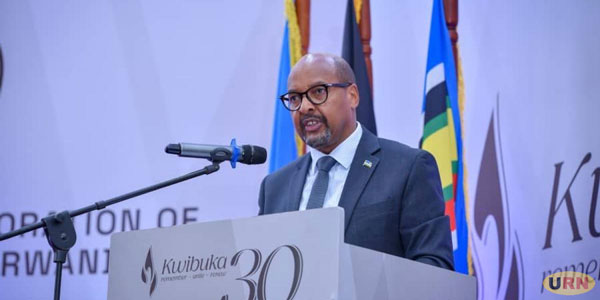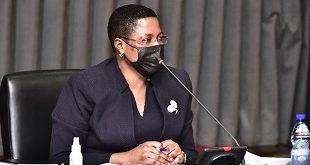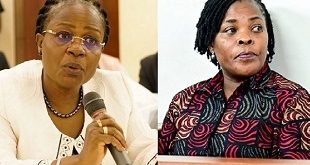
Kampala, Uganda | THE INDEPENDENT | Joseph Rutabana, High Commissioner of Rwanda to Uganda has condemned several European and African nations for attempting to cover up the acts of the perpetrators of the 1994 genocide against the Tutsi.
Rwandans are marking three decades since the genocide tore apart their country, with neighbors turning against each other in one of the bloodiest massacres.
Rwandan officials have frequently accused genocide perpetrators and accomplices of moving freely in different countries as well as criticizing certain nations for blocking channels that convey the truth about Rwanda and the genocide.
Speaking at a Public Lecture held at Makerere University on the 30th commemoration of the Genocide Against the Tutsi in Rwanda, Rutabana said that despite significant achievements in rebuilding Rwanda since the genocide, there is still an alarming increase in denial of its occurrence.
He explained that denial of the genocide is part of a strategy by some perpetrators to reject proven facts that Tutsis were victims of genocide, with alleged perpetrators attempting to rewrite history by claiming the killings were self-defense and blaming the victims instead.
Rutabana emphasized that rather than denying the genocide, global efforts should focus on educating the masses about genocide to preserve the memories of the deceased and reflect on its root causes to prevent similar atrocities from happening again.
The killings which began on 7th April 1994, lasted 100 days before the Rwandan Patriotic Front (RPF) took over Kigali in July of the year, and saw some 800,000 people dead, largely Tutsis but also moderate Hutus.
The assassination of Hutu President Juvenal Habyarimana on the night of April 6, when his plane was shot down over Kigali triggered the rampage by armed Hutu men and the “Interahamwe” militia.
Their victims were shot, beaten, or hacked to death in killings fueled by vicious anti-Tutsi propaganda broadcast on TV and radio. At least 250,000 women were raped, according to the United Nations figures.
It is estimated that a total number of 10,983 victims of the genocide were buried in Uganda. Three memorial sites were established at Ggolo, Mpigi district, where 4,771 bodies were buried; Lambu, Masaka district, 3,337 and Kasensero in Rakai district where 2,875 people were buried.
Phillip Rukyekerwa asked Ugandans to use the public lecture to reaffirm their support for the fight against genocide and ensure that it never happens again.
He further recognized Rwanda’s reconciliation efforts to ensure peace and stability are secured in the country.
Makerere University Deputy Vice-Chancellor Professor Umar Kakumba said that the lecture served as a timely reminder of the enormous damage caused by hate speech, derogatory remarks, and tribalism, urging these to be abandoned to prevent inter-generational discord.
****
URN
 The Independent Uganda: You get the Truth we Pay the Price
The Independent Uganda: You get the Truth we Pay the Price


